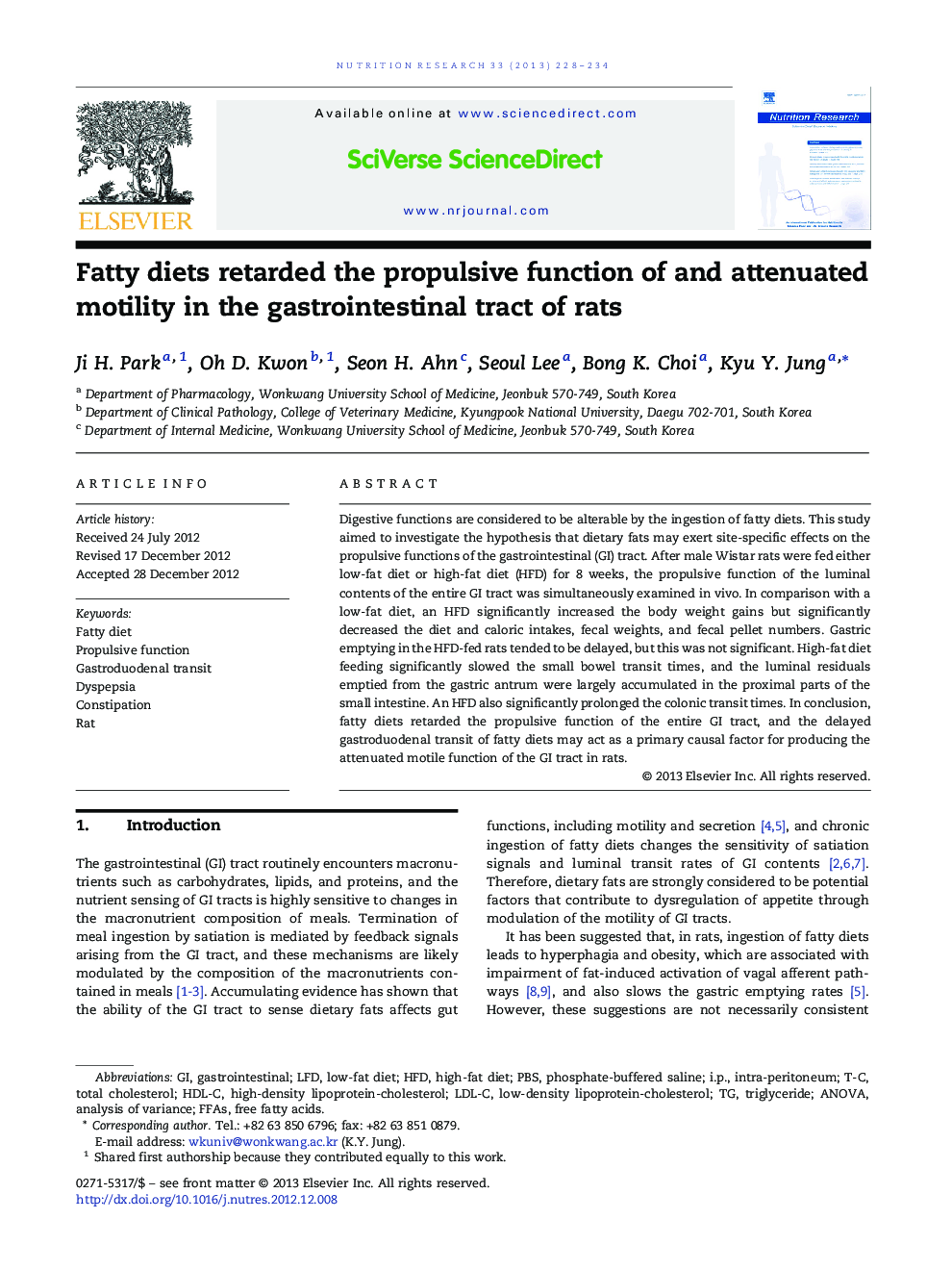| Article ID | Journal | Published Year | Pages | File Type |
|---|---|---|---|---|
| 5904564 | Nutrition Research | 2013 | 7 Pages |
Digestive functions are considered to be alterable by the ingestion of fatty diets. This study aimed to investigate the hypothesis that dietary fats may exert site-specific effects on the propulsive functions of the gastrointestinal (GI) tract. After male Wistar rats were fed either low-fat diet or high-fat diet (HFD) for 8 weeks, the propulsive function of the luminal contents of the entire GI tract was simultaneously examined in vivo. In comparison with a low-fat diet, an HFD significantly increased the body weight gains but significantly decreased the diet and caloric intakes, fecal weights, and fecal pellet numbers. Gastric emptying in the HFD-fed rats tended to be delayed, but this was not significant. High-fat diet feeding significantly slowed the small bowel transit times, and the luminal residuals emptied from the gastric antrum were largely accumulated in the proximal parts of the small intestine. An HFD also significantly prolonged the colonic transit times. In conclusion, fatty diets retarded the propulsive function of the entire GI tract, and the delayed gastroduodenal transit of fatty diets may act as a primary causal factor for producing the attenuated motile function of the GI tract in rats.
